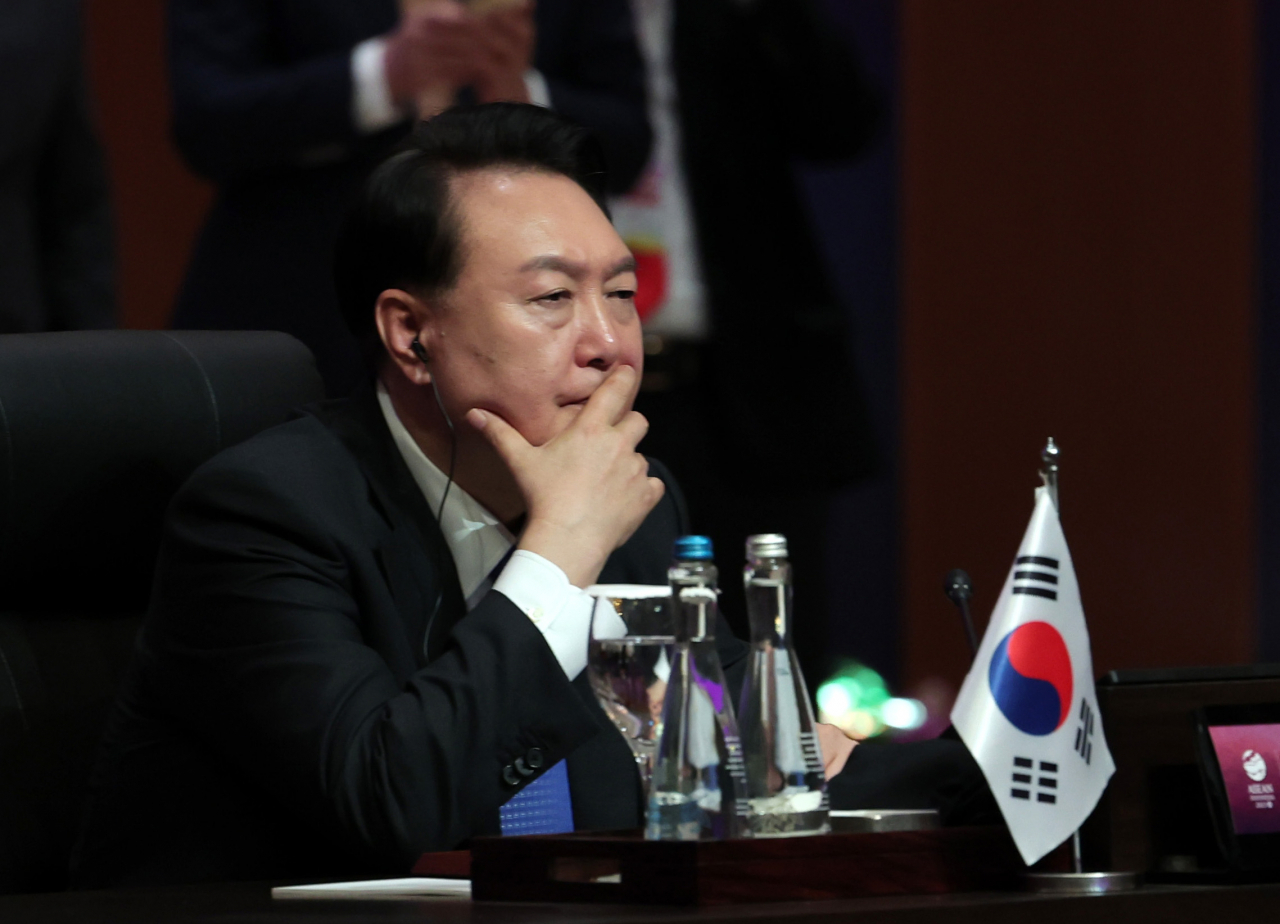Yoon urges UNSC permanent members to take 'heavy responsibility' on NK
By Shin Ji-hyePublished : Sept. 7, 2023 - 16:39

South Korean President Yoon Suk Yeol highlighted the serious breaches of United Nations Security Council sanctions by North Korea at the East Asia Summit on Thursday, apparently emphasizing the responsibility of permanent members -- including Russia and China -- who approved the sanctions resolution.
The East Asia Summit, a forum addressing major security issues in the region, is comprised of 10 Association of Southeast Asian member nations as well as representatives from South Korea, the US, Japan, China, Russia, India, Australia and New Zealand. Notably, Chinese Premier Li Qiang and Russian Foreign Minister Sergey Lavrov attended the recent meeting in Jakarta, Indonesia.
Although Yoon did not specify any countries, his messages was apparently directed at Russia, which is reportedly seeking to strengthen military cooperation through "a leader-level summit." The five permanent members of the UNSC are the US, UK, France, China and Russia.
Speaking at the summit, Yoon said North Korea's nuclear and missile development is “a serious violation” of UNSC resolutions, a direct challenge to world peace and “an existential threat” that can strike all participating countries, according to the presidential office on the day.
Yoon emphasized the need for all UN member states to comply with Security Council resolutions and the “heavy responsibility” of the permanent members of the Security Council, who are parties to the adoption of the resolution.
His comments followed his previous statement during the ASEAN-South Korea summit that no UN member state should “neglect” its duty to impose sanctions on North Korea, as mandated by the UNSC, including the “restriction on illegal arms trade.”
Yoon also emphasized the importance of halting North Korea’s illegal activities including the “theft of virtual assets, overseas worker deployment and maritime trans-shipments,” which serve as funding sources for the regime’s nuclear and missile development. He also urged member countries to focus on addressing human rights issues in North Korea.
Noting that Russia’s invasion of Ukraine is “a clear violation of international law,” Yoon mentioned Korea’s past experience of facing a national crisis due to the 1950-53 Korean War, which broke out due to North Korea’s illegal invasion of the South. He outlined the “Ukraine Peace Solidarity Initiative” that he announced with President Volodymyr Zelenskyy during his visit to the Ukrainian city of Kiev in July.
Regarding the South China Sea Island dispute, Yoon said attempts to unilaterally change the status quo by force are “unacceptable.”
“It is necessary to establish a rules-based maritime order in the South China Sea, a key maritime transportation route in the region,” he said. “I hope that the South China Sea rules of conduct will be established while respecting the principles of international law and guaranteeing the rights of each country.”
Yoon said South Korea would expand maritime security cooperation with ASEAN while protecting freedom of navigation and flight in accordance with the UN Convention on the Law of the Sea.
Yoon expressed his concern about the ongoing violence and humanitarian crisis in Myanmar. He expressed support for ASEAN’s solution through stopping violence and inclusive dialogue, promising humanitarian support to the people of Myanmar.
Noting South Korea's closer relationship with the US and Japan, Yoon said the three countries would jointly contribute to issues in the Indo-Pacific region.
“The three countries of South Korea, the US and Japan have opened a new chapter of cooperation,” Yoon said. “The driving force that unites the three countries is a sense of responsibility for freedom, peace and prosperity in the Indo-Pacific region.”



















![[Today’s K-pop] Treasure to publish magazine for debut anniversary](http://res.heraldm.com/phpwas/restmb_idxmake.php?idx=642&simg=/content/image/2024/07/26/20240726050551_0.jpg&u=)